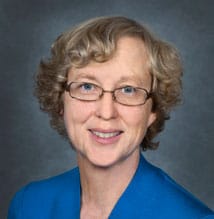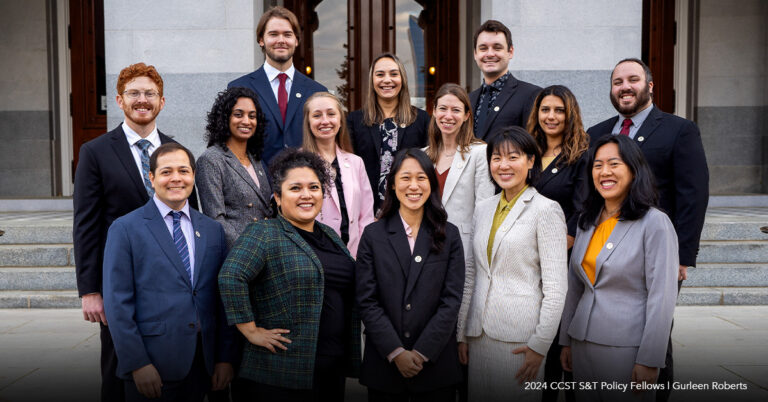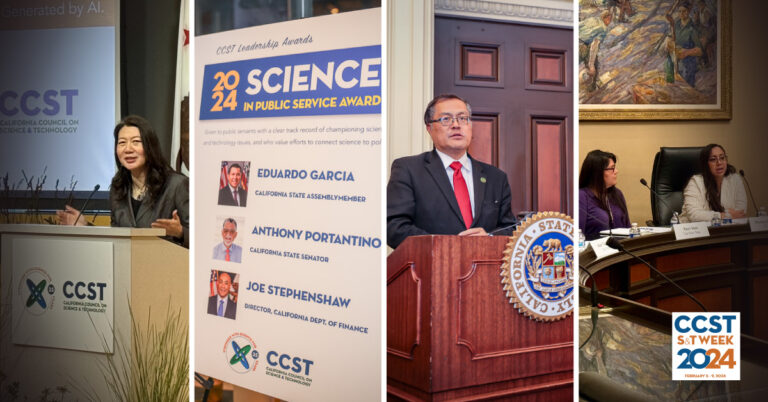Update: Applications for the CCST Science & Technology Policy Fellowship Have Closed
CCST Council Member Katherine Yelick Honored by ACM Council on Women
April 16, 2013 | CCST Newsroom | Contact: M. Daniel DeCillis

CCST Council Member Katherine Yelick has been honored by the Association for Computing Machinery’s (ACM) Council on Women, which has named her the 2013-2014 Athena Lecturer. The Athena Lecturer award celebrates women researchers who have made fundamental contributions to computer science. Yelick, a Professor of Electrical Engineering Computer Sciences at UC Berkeley and also the Associate Laboratory Director for Computing Sciences at Lawrence Berkeley National Laboratory, is being honored for her work in parallel programming.
“In computer science, women have been historically underrepresented,” said Yelick. “Today, less than 20% of computer science degrees go to women. Part of the ACM Council on Women’s focus is to try to help women understand what the field is about and engage larger numbers in computer science. “Computer science offers wonderful opportunities to impact many societal problems, from health to the environment, while at the same time attacking interesting technical challenges.”
Parallel programming is the practice of programming large numbers of processors to solve a single problem, such a simulating future impacts of climate change, to analyzing large data sets. “Parallel computing both produces enormous data sets and is necessary for analyzing such data sets,” said Yelick. “Large scientific projects may involve petabytes (1015 bytes) of data, which are impossible for humans to analyze and would take several months on a personal computer, but can be done in a few hours using parallel computing.”
Among her accomplishments, Yelick developed novel performance tuning, compilers and runtime systems, which implement the core behavior of computer languages. She co-invented an extension of the C programming language designed for high performance computing on large-scale parallel machines and a parallel dialect of Java, one of the most popular programming languages in use, to support high-performance scientific computing on large-scale multiprocessors, Much of her work has been done in collaboration with other researchers at Berkeley Lab and UC Berkeley, and their software is used in research, teaching and production environments.
The ability to work rapidly with increasingly large data sets is crucial for advances in many fields; CCST has explored the potential of ‘big data’ in several recent meetings. However, for Yelick, the Council’s focus on education related issues is just as important for computer science in California.
“Computer science is a critical field, but one in which the curriculum, particularly at the K-12 level, is highly variable,” noted Yelick. “What should a high school senior be expected to know? In addition, the rapid growth of applied technologies to the education process from K-12 through higher education, such as online courses, automatic grading, and so on has raised numerous technical and policy issues which need to be understood.”
Yelick will deliver the Athena Lecture at the Supercomputing Conference in Denver in November.






